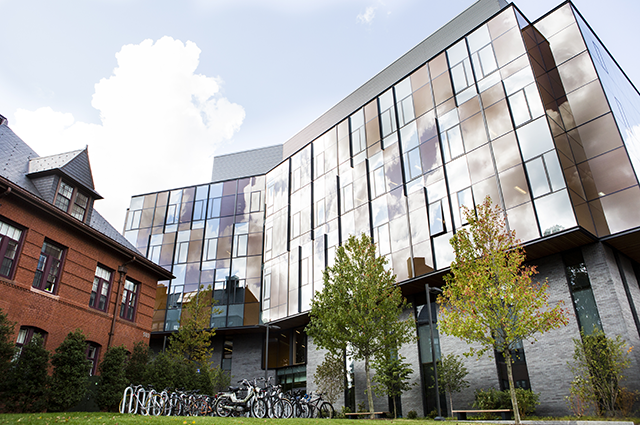Grant funds new research equipment

Across the School of Engineering, researchers rely on specialized equipment to further their innovative work. In Tufts’ Epitaxial Core Facility, engineers use a host of machines to complete molecular beam epitaxy, a process through which thin film materials are produced.
Research Assistant Professor Kevin Grossklaus of the Department of Electrical and Computer Engineering was recently awarded a prestigious grant by the Air Force Office of Scientific Research to fund critical new equipment for the Epitaxial Core Facility. Grossklaus’ proposal, titled “Spectral Reflectance System for Low Substrate Temperature Substrate Measurement during Molecular Beam Epitaxy,” was one of fewer than 150 projects selected as part of a $59 million project from the Defense University Research Instrumentation Program (DURIP), which funds university research equipment.
The grant will supply a new spectral reflectance tool that is optimized for high energy critical point reflectance thermometry (HCRT). Improved temperature monitoring will support the production of small bandgap semiconductor alloys, which are central to developing infrared technologies.
Molecular beam epitaxial growth of these alloys requires extremely low growth temperatures, which are difficult to monitor. Maintaining a low temperature is essential to ensure the quality of the alloys, but current non-contact temperature monitoring methods are insufficient. Tufts researchers have utilized HCRT to measure the temperature of these materials with some success, but equipment is not sensitive enough to detect the low temperatures required for small bandgap semiconductor alloys in molecular beam epitaxy.
The new machine will be able to detect low temperatures with greater accuracy. It will also be capable of measuring a wide range of substrate temperatures, which will greatly expand the lab’s capabilities to develop different materials.
Grossklaus is a facility manager and researcher at the Epitaxial Core Facility. Led by Professor Tom Vandervelde, Chair of the Department of Electrical and Computer Engineering, the facility focuses on advanced molecular beam epitaxy capability for growth of epitaxial semiconductor film structures.
Department:
Electrical and Computer Engineering